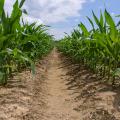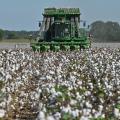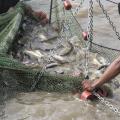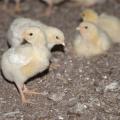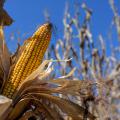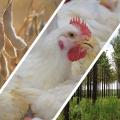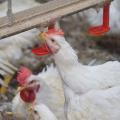News Filed Under Agricultural Economics
Although prices for timber were lower in 2024, harvest on the state’s forest land was up about 8%, giving forestry an expected value of $1.5 billion, similar to what it had in 2023.
STARKVILLE, Miss. -- Agricultural specialists with Mississippi State University will share updates and forecasts for 2025 on the state’s largest industry during a conference in January.
The 2025 Mississippi Agricultural Outlook Conference will be held Jan. 14 at the Mill Conference Center in Starkville from 8:30 a.m. to 4 p.m. Producers, ag lenders and farm managers are encouraged to attend.
STARKVILLE, Miss. -- Agriculture and forestry are Mississippi’s top industries, but their significance to the state’s economy extends beyond the revenue they generate on their own.
An analysis produced by agricultural economists with the Mississippi State University Extension Service found these sectors combined were an estimated $46.2 billion industry in 2022, accounting for 185,744 jobs and more than 14% of the state’s total economic activity.
STARKVILLE, Miss. -- Agricultural producers and consultants are encouraged to register for the annual Mississippi State University Row Crop Short Course.
Hosted by the Mississippi State University Extension Service and the Mississippi Agricultural and Forestry Experiment Station, the 2024 Row Crop Short Course will be held Dec. 9-11 at the Mill Conference Center in Starkville.
STARKVILLE, Miss. -- Lower feed prices are providing some relief to Mississippi’s catfish producers, but many are still facing more than their share of obstacles just to break even.
Among these are middling demand, high operating costs and renovation.
STARKVILLE, Miss. -- Forest landowners in Mississippi can now join the state’s farm owners who suffered production loss due to last year’s drought in applying for federal emergency loans.
STARKVILLE, Miss. -- Producers should anticipate tighter profit margins in 2024 as agricultural commodity prices decrease and financing costs climb. However, experts expect the industry to be buoyed by its economic strength, which has grown 6% since 2021.
Mississippi’s poultry took an estimated 23% loss in value in 2023; though production was strong, a failure to meet the previous year’s record high prices was responsible for the hit. Poultry generated an estimated $3.1 billion to Mississippi agriculture in 2023, down from the $3.9 billion generated in 2022.
STARKVILLE, Miss. -- Agricultural specialists with Mississippi State University will share updates and forecasts for 2024 on the state’s largest industry during a conference in January.
RAYMOND, Miss. -- The favorable weather that kicked off planting season for Mississippi corn producers stayed in play throughout the growing season and is helping growers wrap up harvest. Mississippi producers planted 790,000 acres of corn, up from the 700,000 acres forecast just before farmers began planting in mid-March. The U.S. Department of Agriculture National Agricultural Statistics Service estimates 770,000 of those acres will be harvested for grain.
RAYMOND, Miss. -- In Mississippi, 230,000 residents lack access to high-speed internet and the many benefits it offers, but the Mississippi State University Extension Service is working to help change that. Devon Mills, an assistant Extension professor of agricultural economics, is leading an effort to build an inventory of all the organizations in the state working to promote digital skills and literacy. This effort, called the Mississippi Digital Asset Mapping Project, is helping spread the word about a survey to help construct that inventory.
STONEVILLE, Miss. -- Agricultural producers hoping for some relief from recent high fertilizer prices are not likely to find it in 2023.
Brian Mills, Mississippi State University Extension Service ag economist at the Delta Research and Extension Center in Stoneville, said fertilizer prices are expected to remain at 2022 levels.
“We do have good, high crop prices, and with high crop prices, you usually see input costs stay high and go up,” Mills said.
Mississippi agricultural producers shattered previous records in 2022 with an estimated $9.7 billion in production value based on high market prices that almost kept pace with higher production costs.
STARKVILLE, Miss. -- Poultry was already Mississippi’s top agricultural commodity before its overall value increased even more in 2022.
The estimated value of production for the state’s poultry in 2022 was $3.8 billion. This 48% increase over 2021’s record production value of $2.6 billion will rewrite the record books if these totals hold when the final numbers are released by the U.S. Department of Agriculture next April.
Mississippi State University is the lead partner on a $10 million grant from the U.S. Department of Agriculture to conduct climate-smart projects. Beth Baker, an Extension specialist in natural resource conservation in agroecosystems, is the lead investigator on the grant project announced Sept. 14
Most cotton in Mississippi got off to an excellent start in May, received the heat needed in June and July, and now is ready for sunny skies so growers can harvest a potentially above-average crop. The U.S. Department of Agriculture estimates 56% of the crop is in good or excellent shape, with another 38% estimated at fair. As of Aug. 28, bolls were opening on an estimated 25% of the crop.


